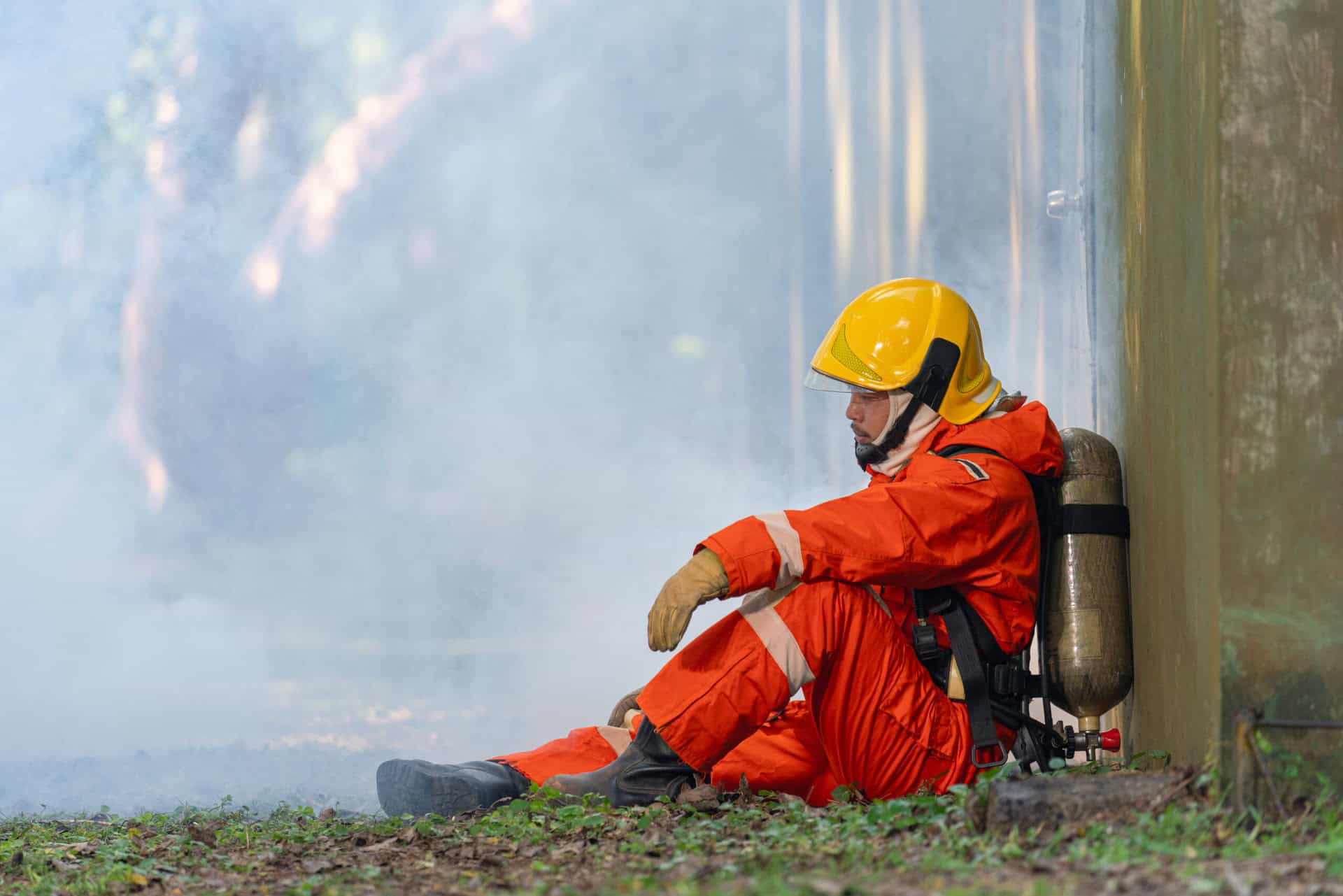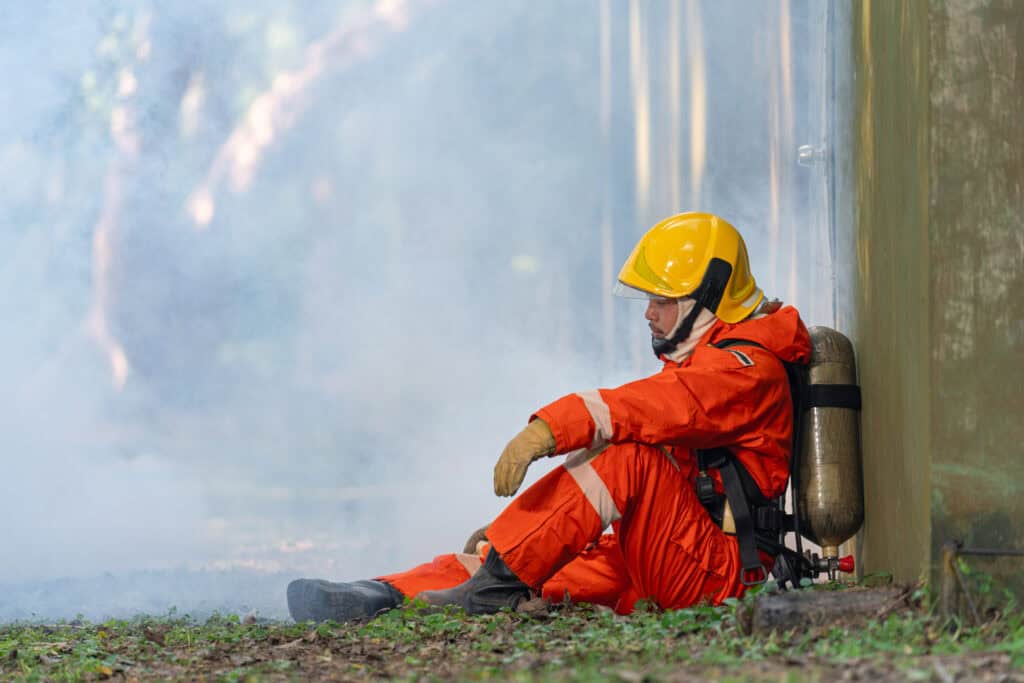First Responder Mental Health: How to Decompress and Avoid Burnout
3/6/2025 by Markie Bryant

Table of Contents
When the sirens fade and the emergency subsides, the impact of the job doesn’t disappear. First responders—police officers, firefighters, paramedics, and others—face unique challenges that extend far beyond the immediate demands of their roles. Their dedication to serving others often comes at a significant personal cost, particularly to their mental health.
First responder mental health isn’t just a personal concern; it’s a public safety issue. When those who protect and serve are physically present but mentally overwhelmed, their performance and safety are compromised. This blog dives into the challenges first responders face, practical strategies for maintaining mental health, and how After Action provides the specialized care they need to decompress, recover, and thrive.
Understanding the Impact on First Responder Mental Health
The Reality of Cumulative Trauma
Every shift is unpredictable. Whether it’s responding to a tragic accident, facing violent confrontations, or dealing with human suffering, first responders endure a level of stress that most people cannot imagine. Over time, the exposure to trauma accumulates, creating what’s known as cumulative trauma.
Cumulative trauma doesn’t happen overnight. It builds gradually, embedding itself into the psyche until it becomes a weight too heavy to bear. Without intervention, it can lead to conditions such as PTSD, anxiety, and depression. Recognizing this cycle is the first step in protecting first responder mental health.
Burnout: A Silent Crisis
Burnout among first responders goes beyond mere fatigue. It’s the emotional exhaustion, cynicism, and reduced sense of accomplishment that occur when high levels of stress persist unchecked. Symptoms of burnout include difficulty sleeping, irritability, and a sense of hopelessness. Left unaddressed, burnout can escalate into serious mental health crises, impacting both the individual and their ability to serve effectively.
Breaking the Stigma
Despite the high prevalence of mental health challenges among first responders, seeking help is often stigmatized within the culture. Many feel that admitting they need support might be perceived as a weakness or an inability to handle the job. Addressing this stigma is crucial. First responder mental health isn’t a luxury—it’s a necessity for sustained service and personal well-being.
Strategies to Support First Responder Mental Health

Tactical Breathing: A Tool for Immediate Relief
Stress often triggers a physiological response, making it hard to think clearly or stay calm. Tactical breathing techniques, such as box breathing (inhale for four seconds, hold for four seconds, exhale for four seconds, pause for four seconds), can be invaluable. These exercises help lower heart rates, reduce anxiety, and provide a moment of calm in high-pressure situations.
Post-Shift Decompression Routines
Transitioning from work to home life is essential for maintaining mental health. Creating a decompression routine can help first responders leave the stress of the job behind. Activities like journaling, meditating, or even engaging in light exercise can help process the emotions and stress accumulated during the day.
The Role of Peer Support
Connecting with others who understand the unique challenges of the job can be deeply therapeutic. Peer support groups offer a safe environment for first responders to share their experiences, gain perspective, and provide mutual encouragement. These groups foster a sense of community and can be a lifeline for those who feel isolated in their struggles.
The After Action Approach to First Responder Mental Health
Trauma-Informed Care for Lasting Recovery
At After Action, we understand that effective care requires addressing the root causes of trauma. Our trauma-informed programs are designed to help first responders heal from the cumulative effects of their work. This approach not only focuses on managing symptoms but also equips individuals with tools to build resilience and recover fully.
Gender-Specific Housing for Privacy and Security
First responders often feel more comfortable in environments tailored to their needs. Our gender-specific housing ensures a private and secure space where individuals can focus on their recovery without distractions.
Sensory Modulation Therapy for Grounding and Recovery
A unique feature of our approach is Sensory Modulation Therapy, which helps first responders manage the physical and emotional effects of trauma. By using sensory inputs like weighted blankets, soothing sounds, and calming visuals, this therapy supports individuals in regaining control over their emotional responses. Sensory Modulation is particularly effective for grounding and reducing hyperarousal, common challenges faced by first responders.
Peer-Led Support and Professional Guidance
After Action combines the strength of peer-led support groups with professional therapeutic interventions. These programs address the emotional, physical, and psychological aspects of first responder mental health, offering a holistic path to recovery.
Practical Tips for Families Supporting First Responders
First responder mental health isn’t just an individual issue—it affects their loved ones as well. Families play a vital role in creating a supportive environment.
- Encourage Communication: Provide a safe space for open conversations about their experiences and emotions.
- Respect Decompression Time: Understand the importance of allowing first responders to unwind after a shift.
- Be Informed: Learn about the mental health challenges first responders face to better empathize and support them.
- Seek External Support: Don’t hesitate to involve professional resources like After Action to ensure they get the help they need.
FAQs About First Responder Mental Health
Why is first responder mental health important?
The high-stress nature of the job puts first responders at risk for mental health challenges like PTSD and burnout. Supporting their mental health ensures their safety and effectiveness on the job.
How does After Action help first responders?
After Action offers trauma-informed care, peer support, and gender-specific housing to address the unique needs of first responders.
What are the signs of burnout in first responders?
Burnout symptoms include emotional exhaustion, detachment, difficulty sleeping, and reduced performance at work.
How can families support first responder mental health?
Families can encourage open communication, respect personal space, and support seeking professional help when needed.